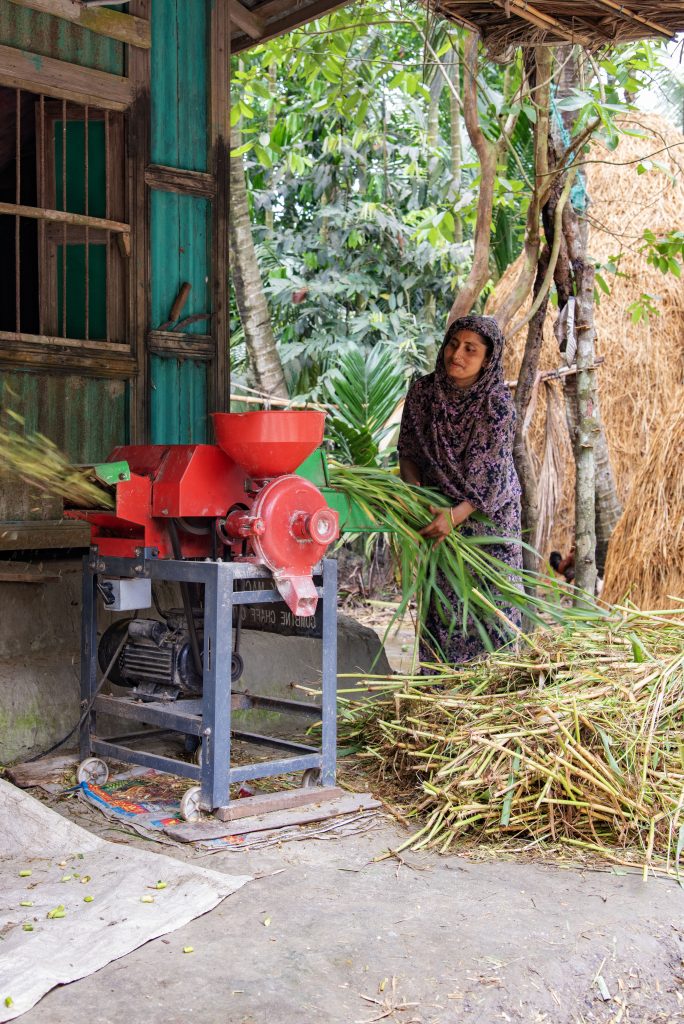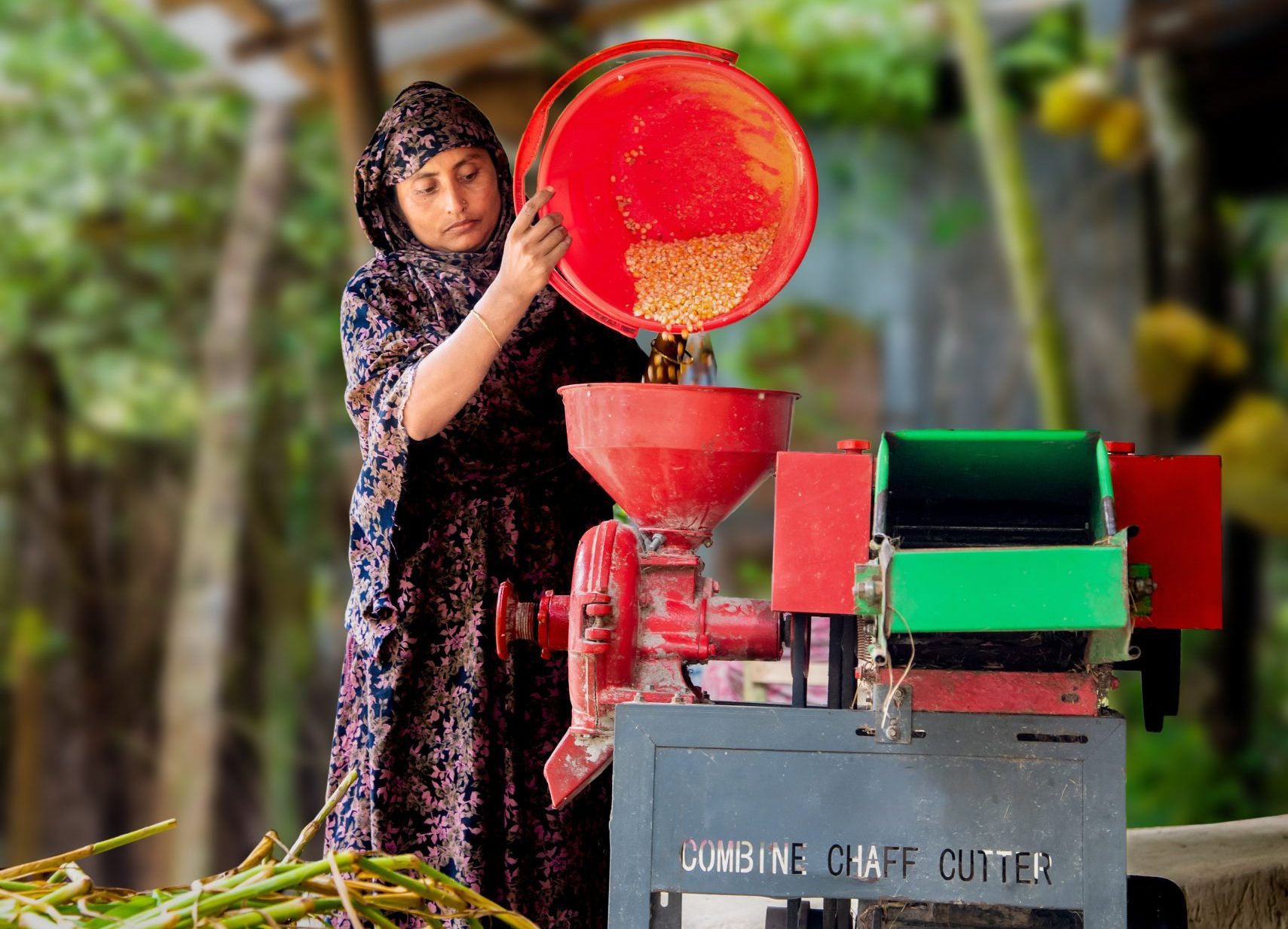Smart solutions for big savings and cleaner production in dairy farming
The sky over Rasulpur village in Bhola district was a canvas of soft, cotton-like clouds, a gentle reminder of the recent rain. The path to Sajeda Khatun’s tin-shed home was muddy, but the journey revealed a story of transformation. We walked down the road to meet Sajeda Khatun. At 42, she is a dedicated dairy farmer and a member of SMART project’s Cattle and Buffalo sub-sector, and has turned challenges into triumphs with strategic support from the project.
Before joining the SMART project, Sajeda faced daily struggles in managing her 14 cattle, including 8 milch cows that produced around 60 liters of milk daily. She needed 360-370 kg of fodder, but a significant 30-40 kg went to waste each day because she had to manually chop it. Her reliance on purchasing expensive concentrated feed from the local market further squeezed her profits. The process was labor-intensive, costly, and inefficient.
Recognizing her potential and need for sustainable practices, the SMART project provided Sajeda with a BDT 1 lakh loan and a small grant. This crucial assistance enabled her to adopt two key Resource-Efficient and Cleaner Production (RECP) practices: self-processing feed using a multifunctional feed processing machine and waste disposal pit. She invested in a modern feed processing machine and installed a waste disposal pit.
The impact was immediate and profound. “I used to buy over 360 kg of fodder every day, and more than 40 kg was wasted because I had to cut it by hand,” Sajeda explained, her voice now filled with relief. “Now, with the processing machine, there’s virtually no waste. Plus, I don’t have to buy concentrated feed anymore; I make it myself, saving about BDT 15 per kg!”
This simple yet effective change drastically reduced her daily fodder use to about 330 kg, with minimal wastage. By crushing her own concentrate feed, she saves BDT 10-15 per unit. These savings, coupled with reduced labor and time, have significantly boosted her farm’s profitability and given her more time to manage her household, which includes her husband, two sons, and one daughter.

Sajeda’s farm now stands as a model of efficiency. Her ability to produce most of her feed on-site has made her less vulnerable to market price fluctuations. In an inspiring display of entrepreneurial spirit, she also offers fodder chopping and feed grinding services to other farmers in Rasulpur, generating additional income and strengthening community ties.
Looking ahead, Sajeda Khatun is filled with aspirations. She hopes to expand her herd of milch cows and invest in advanced dairy machinery, such as milking machines, to further enhance her farm’s productivity. Her journey from a struggling farmer to a successful, environmentally conscious entrepreneur highlights the transformative power of targeted interventions and the resilience of individuals like Sajeda, who are building a greener, more prosperous future for themselves and their community.



